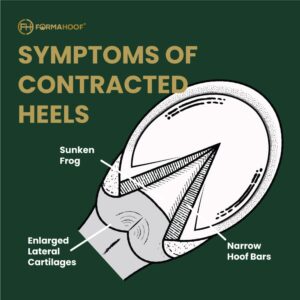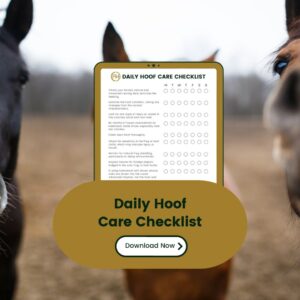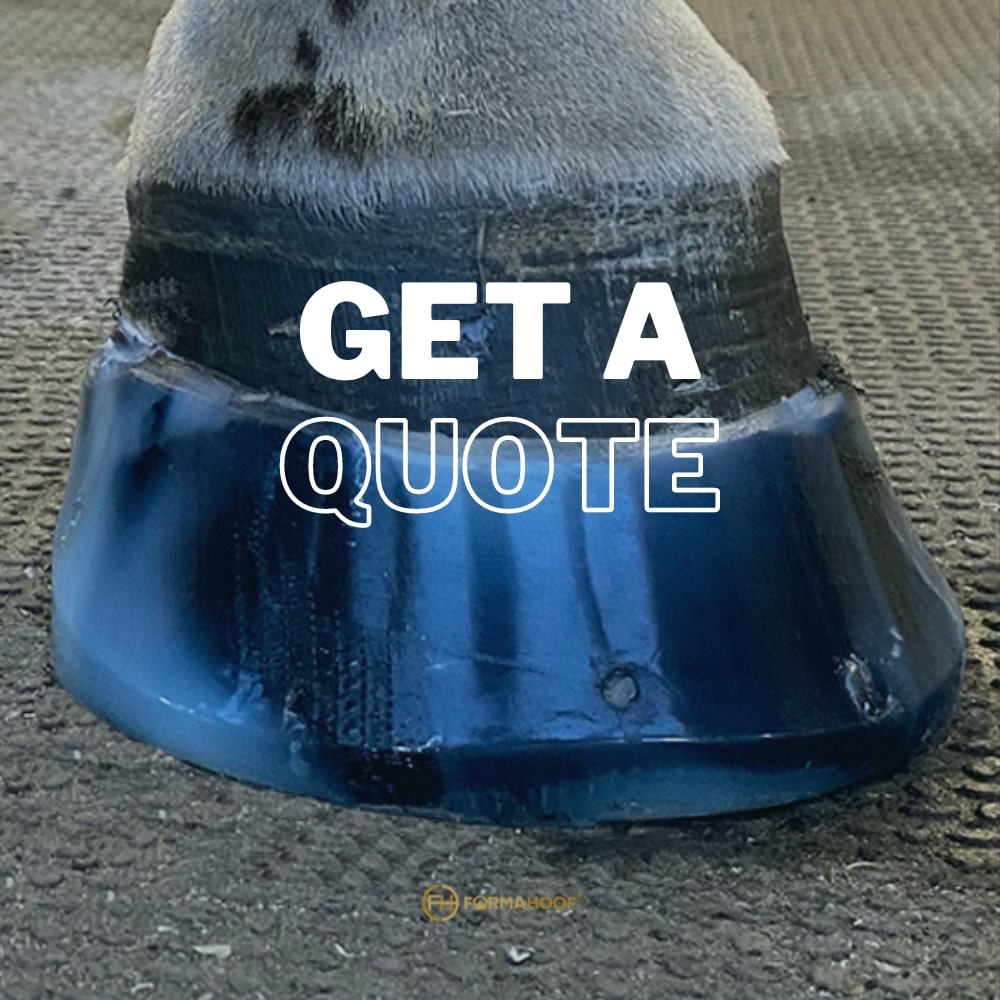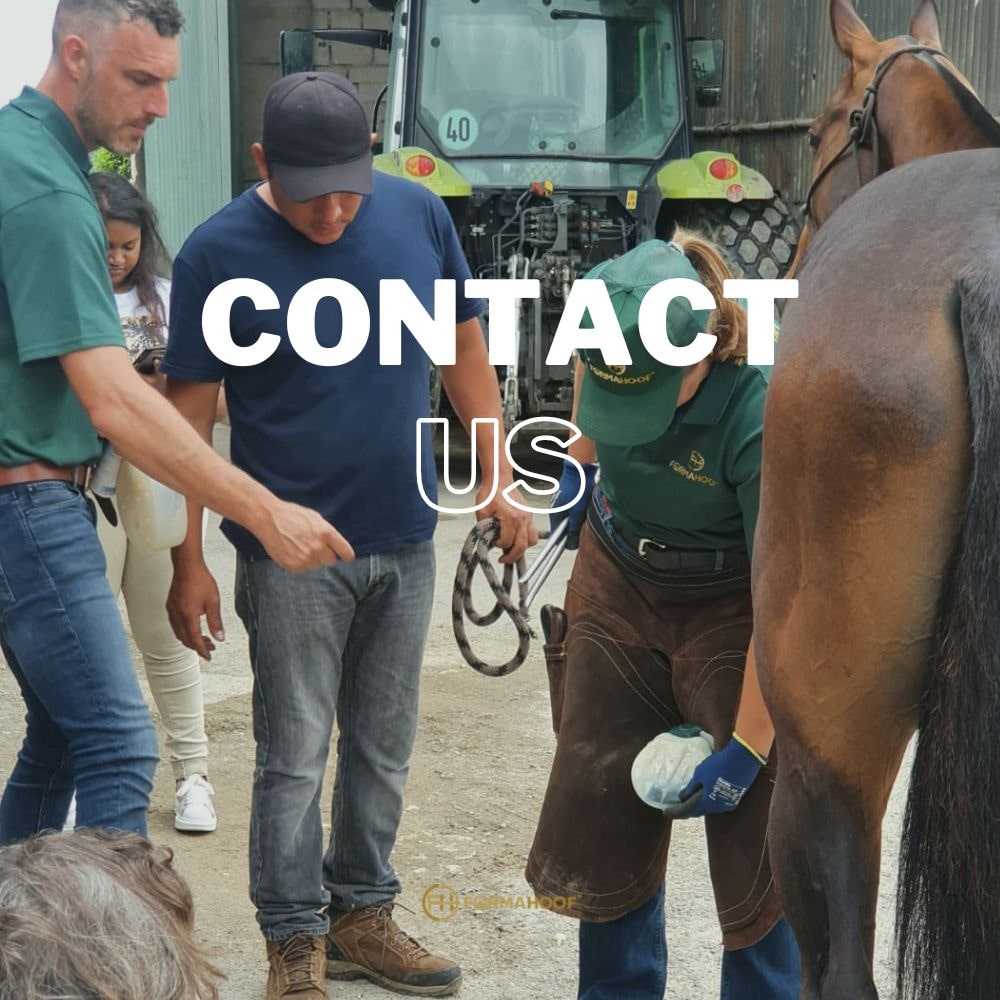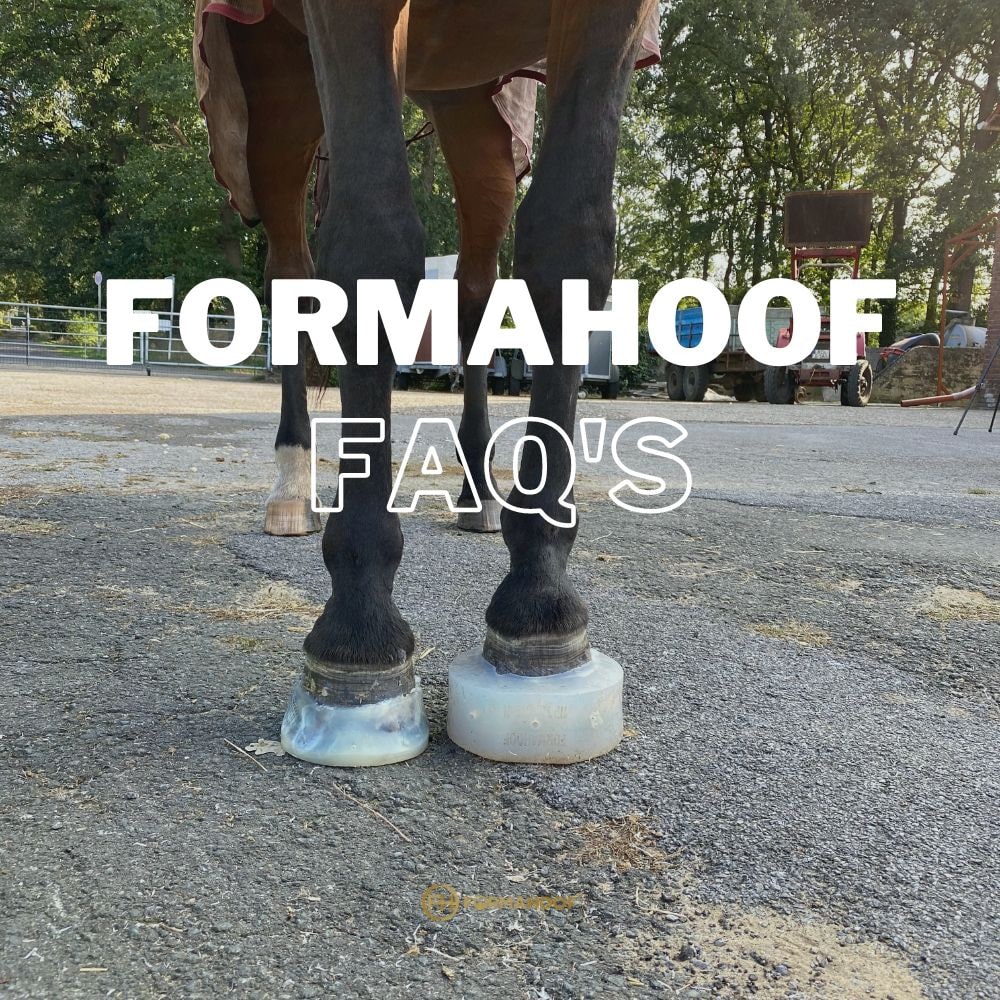Hoof health is essential all year round, but the changing seasons can have a significant impact on your horse’s hooves. In this seasonal article, we look at caring for the health and integrity of your horse’s hooves during potentially the most challenging season – winter.
Environmental conditions such as wet, muddy, and frozen ground can have adverse effects on horse’s hooves so it’s important to try to protect them as best you can with the right care and prevention.
Nutrition for Horses in Winter
The right nutrition is crucial in winter and throughout the year to create strong, healthy hooves so it’s important to ensure your horse is receiving a balanced diet which supplies key nutrients:

Energy
Energy and Protein are the two most limiting nutrients for hoof health and growth and if they are not supplied sufficiently hoof quality will be poor. Ensuring the diet provides the right energy balance is, therefore, essential to maintain hoof integrity.
A winter diet made up of good quality forage should ensure energy needs are met well, but if your horse is working harder, additional feed may be needed to provide sufficient calories to maintain good energy levels.
Protein
Protein is vital for healthy hoof formation all year round. Hooves are made up of protein and keratin, a specialised sulphur rich protein which is the same protein responsible for our own hair and nails. Amino acids provide the building blocks for proteins so it’s important to ensure the diet provides these.
There are 10 essential amino acids (including the 3 major limiting amino acids, Lysine, methionine, and threonine), which horses are unable to make themselves and need to be supplied as part of a fully balanced diet.
Methionine in particular is a key part of good hoof structure and formation because it provides a source of sulphur, which is essential for producing keratin. Methionine can also be used to produce the sulphur rich amino acid cysteine, which along with cystine is also vital in hoof horn formation.
Good dietary sources of protein in winter include good quality hay and haylage, linseed meal, alfalfa, and chia seeds. Good quality protein can also be supplied through a high specification balancer or hoof supplement.
Biotin and the microbiome
Biotin is one of the most well-known nutrients when it comes to good hoof health. This sulphur rich B Vitamin is a vital for the production of Keratin for strong, healthy hoof horn and has a key role in tissue growth and maintenance.
Biotin and other key B Vitamins for hoof health are actually produced through fermentation of forage by the microbes in your horse’s hindgut. Ensuring your horses hindgut microbes are happy and healthy will help them produce all the essential B vitamins your horse needs.
A compromised microbe population won’t be able to do this, so it’s important to ensure they are supported through the right nutrition. A diet rich in varied forage can help develop a healthy microbial population, alongside pro and pre-biotics to support and nurture beneficial gut microbes.
Research has shown that providing around 20mg of Biotin daily can help hooves to strengthen and grow but to be fully effective it needs to be provided with other nutrients such as methionine and zinc.
Biotin and its co-nutrients can be provided through a good balancer or hoof supplement, but it is important to be aware that hoof horn can take 9 to 12 months to grow down fully from the coronet band, so horses with poor hoof quality will need to be fed it all year round.
Vitamins and Minerals
There are a number of vitamins and minerals with vital roles within hoof health and formation. Essential minerals include zinc, copper, manganese, sulphur and calcium which all have a structural role within the hoof wall and support cell function and proliferation for optimum hoof growth.
Vitamins A, E, C, and the B vitamin niacin are also important for hoof health and integrity. A balanced diet consisting of good quality, varied forage fed alongside a good balancer or hoof supplement will help ensure you provide your horse with all these essential micronutrients.
Omega 3 fatty acids
Fats play a pivotal role because they retain the natural moisture and pliability of the hoof wall, resist the absorption of water from the environment and prevent bacteria and fungi from entering the hoof horn all of which is essential during winter.
Fats contain both Omega 3 and 6 fatty acids, but horses need a higher level of Omega 3 fatty acids for optimum health. Omega 3 fatty acids have numerous benefits associated with their anti-inflammatory properties and help support strong, well growing hooves.
Good sources of Omega 3 fatty acids include fresh grass but when this is lacking in winter, they can be provided through linseed meal or oil.
General Winter Hoof Care
Crisp winter mornings and the beauty of snow-covered fields might seem picturesque, but winter brings its own set of challenges for horse owners, especially concerning hoof care. With fluctuating temperatures, wet conditions, and frozen terrains, it’s paramount to understand the seasonal threats to hoof health and how to combat them.
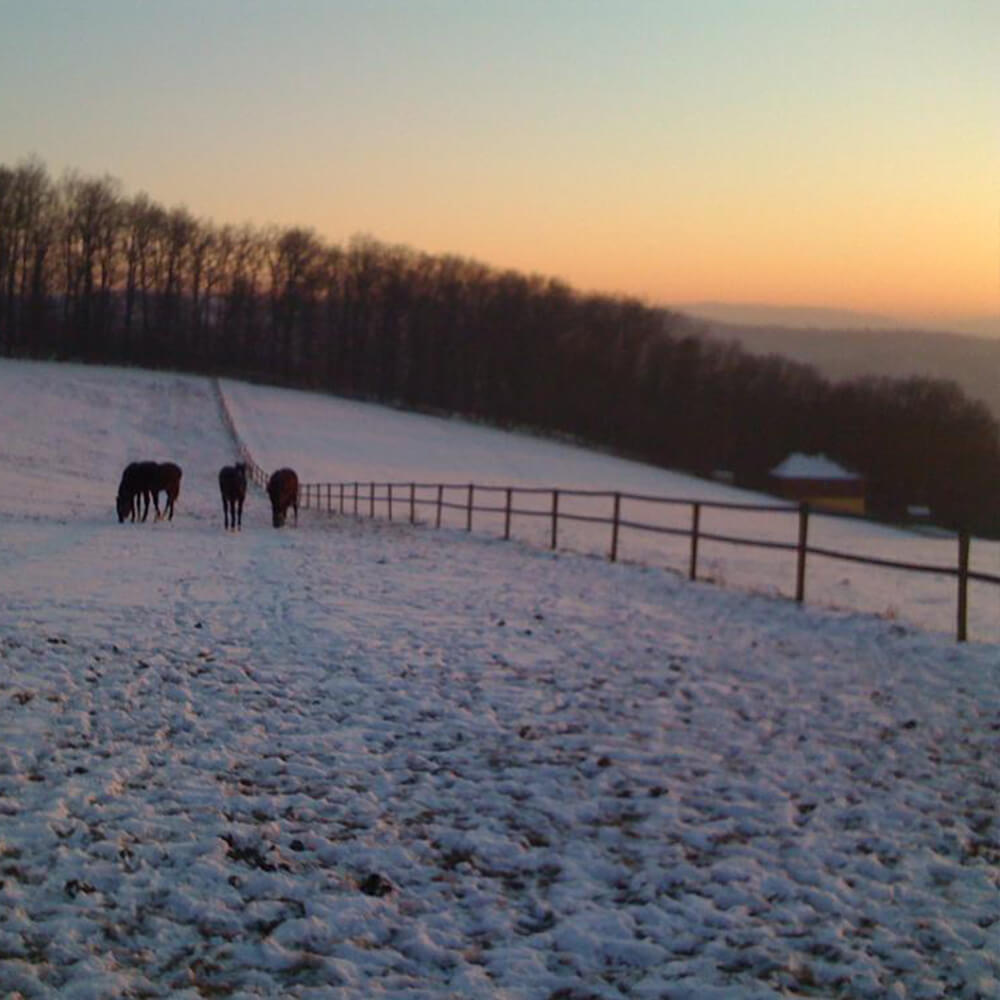
Understanding Winter’s Impact on Hooves
Slower Hoof Growth
The cold months generally witness a reduced pace in hoof growth. This doesn’t mean maintenance can be overlooked; regular check-ups are vital to ensure hooves remain in good condition.
Moisture Imbalance
Ideal hoof health is maintained at around 25% moisture content. Yet, winter’s alternating wet and icy conditions can result in excessive water exposure, weakening the hoof horn.
Threat of Infections
Wet conditions can make hooves overly expand and contract, creating avenues for bacteria. These invaders can lead to painful hoof problems.
Sole Bruising
Icy, frozen terrains can be harsh on the hooves, potentially causing sole bruising.
Overcoming Winter Hoof Challenges with FormaHoof

FormaHoof’s Role in Maintaining Moisture: The unique composition of FormaHoof prevents excessive water absorption, maintaining a balanced moisture content. This protects against conditions like thrush, cracks, and abscesses prevalent in the wet months.
Protection Against Harsh Terrains: With the hoof and sole adequately protected and supported by FormaHoof, horses can navigate icy terrains with lesser risk.
Tackling Snow and Ice: FormaHoof’s non-metallic nature means snow doesn’t refreeze upon contact, preventing snowball accumulation common with traditional horseshoes. For added traction during icy conditions, studs can be incorporated directly into the FormaHoof application.
Winter Hoof Care Recommendations
Regular Checks: Even with slower growth, regular inspections by hoof care professionals are crucial to address abrasions, cracks, and other potential issues.
Optimal Stable Management: If your horse is stabled more during winter, ensure dry bedding, and routinely pick out wet areas to prevent infections like thrush.
Addressing Snow Build-Up: For shod horses, regularly remove balled-up snow from the sole to prevent discomfort.
Nutrition: Adequate nutrition plays a vital role in maintaining hoof health during winter. Ensure your horse’s diet supports hoof strength and resilience.
FormaHoof Winter Tips: For an optimal FormaHoof application during winter, store the FormaHoof Advanced Polymer at room temperature prior to use.
Get Started with Winter Hoof Care!
Winter doesn’t have to be challenging for your horse’s hooves. With the right knowledge and tools, you can ensure their well-being even in the coldest months. Dive deep into comprehensive winter care, understand the importance of nutrition, and see firsthand the benefits of FormaHoof. Ensure your horse steps confidently into the season, with hooves that are resilient, strong, and healthy.



